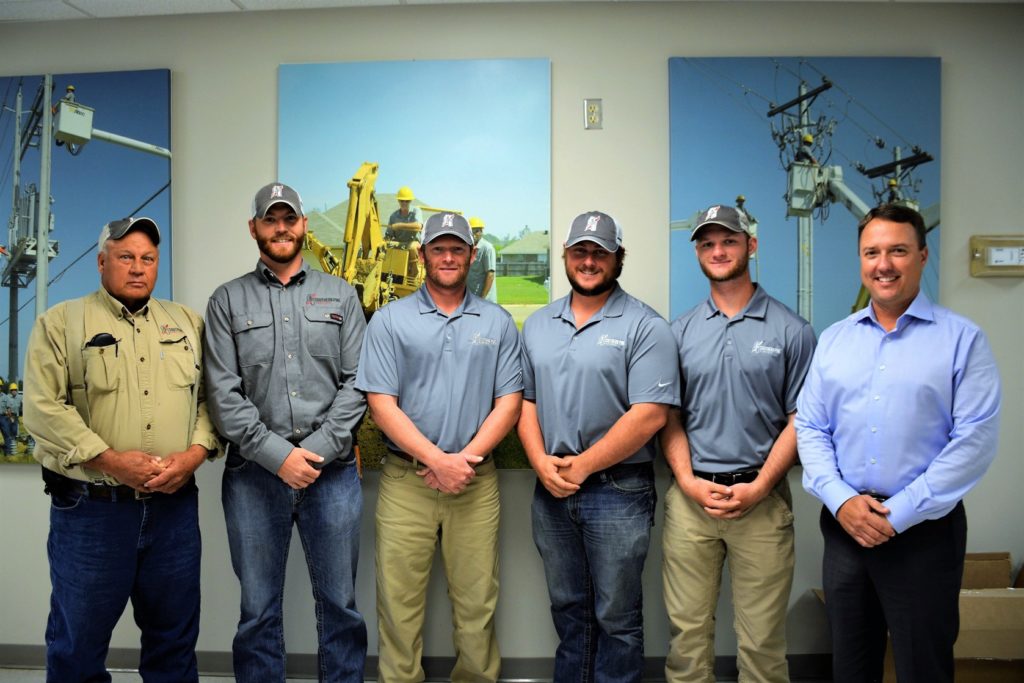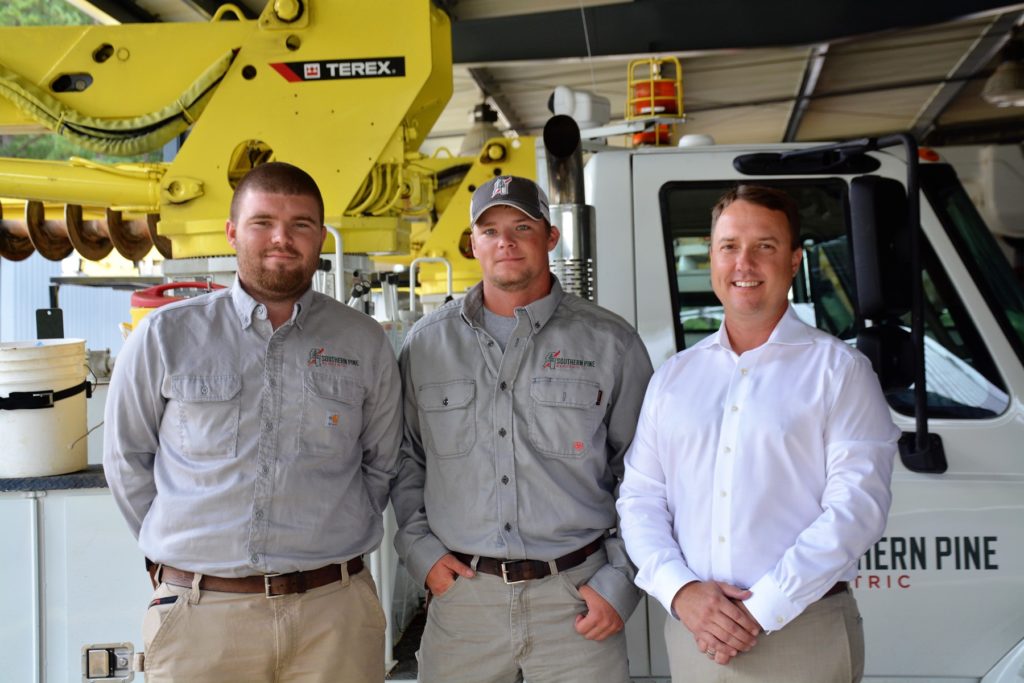
If having one group of life-saving hero linemen at your co-op is great, having two can only be better.
That’s the position Southern Pine Electric finds itself in after its crews came to the rescue of two members in separate incidents.
One group of linemen had gone to a house to lower the power lines so the owner could do some tree work. The time they picked to return “couldn’t have been any better,” as lineman Greg Meadows put it.
“We came back a couple of hours later, got out of the truck and started setting up, and we heard the guy start hollering,” said Meadows, a six-year lineman at Taylorsville, Mississippi-based Southern Pine.
They’d been there maybe 30 seconds when the man had an accident with a chainsaw, severely injuring his left forearm.
“Everybody jumped in. Nobody hesitated,” Meadows said of colleagues Trey Serio, Brett Dew, Parker Vincent and Rodney Buckelew.
They grabbed their first aid kit and called 911. Serio helped the man over to the truck’s tailgate. Someone had already used a belt as a tourniquet, and Serio took off his belt to use as well. But Meadows could see it wasn’t working.
“I took one of the belts off and doubled it up real tight, and I held it until the paramedics got there,” said Meadows. Serio removed his shirt to cover the man’s arm, as others got wet towels to keep the victim cool in the July heat until he was taken to a hospital.
Meadows said the member had no recollection of what happened, and when the linemen visited him a few weeks later he still couldn’t say.
“All that he could remember was that at one point the saw was six inches from his face.”
For linemen Colby Ezell and Tyler White, their experience was a lot less graphic, but every bit as heroic.
They were on their way back to the co-op to call it a day when they saw a man “laying out in his front yard on his belly,” as Ezell described it. “And when we went by we saw that he was waving his hands trying to get somebody’s attention.”
He got their attention.
“I jumped out of the truck,” said Ezell, who walked over to the man while White waited to see if they’d need to call for help.
“I asked him, ‘Sir, are you OK?’ and he said, ‘Man, I don’t know what it is, but I feel like I’m dying.’”
The man told Ezell he’d been working in the yard—with temperatures in the high 90s that July day—and when he went to get a drink he fell over. He said he’d been laying there about an hour.
“He was laying out in the sun, just sweating all over. His clothes were wet,” said Ezell.
“I said, ‘Can we call 911?’ He said, ‘I don’t care who you call, just get me some help,’” Ezell recalled. White radioed the Southern Pine dispatcher to send an ambulance.
Foreman Jimmy Arender came by and helped Ezell pull the man into the shade. The man asked for a drink and the linemen gladly gave him one of their Gatorades.
“He acted like his was scared for his life. He really thought he was going to die, and he very well possibly could have if we wouldn’t have pulled up,” said Ezell, a 10-year veteran.
The member told him several vehicles had gone by, but Ezell believes that based on where the man was, people in regular cars probably didn’t see him, while the co-op bucket truck gave them a better view.
Jason S. Siegfried, Southern Pine’s CEO, said it’s not uncommon for crews to come across a traffic accident and help out, but called these two life-saving incidents in one month “quite extraordinary.”
“God puts his angels where they need to be,” said Siegfried.
He said Ezell and White could have easily driven by in their quest to get home.

“I was real proud of the fact that they pulled off the side of the road to go check on somebody they didn’t know,” said Siegfried. “It turned out to be a life-saving checkup.”
And in the other incident, Siegfried said that had the crew not applied a tourniquet “the fellow certainly would have died.”
“Calling for help is the easy part. Dealing with the trauma is not easy.”
So why do it? Siegfried chalks it up to the cooperative difference.
“There’s a dynamic that’s very common to most of our organizations, and that’s love,” he said. “We have a very family-oriented atmosphere. We all love and care for one another and that naturally extends to the folks we come into contact with every day.”
Michael W. Kahn is a staff writer at NRECA.